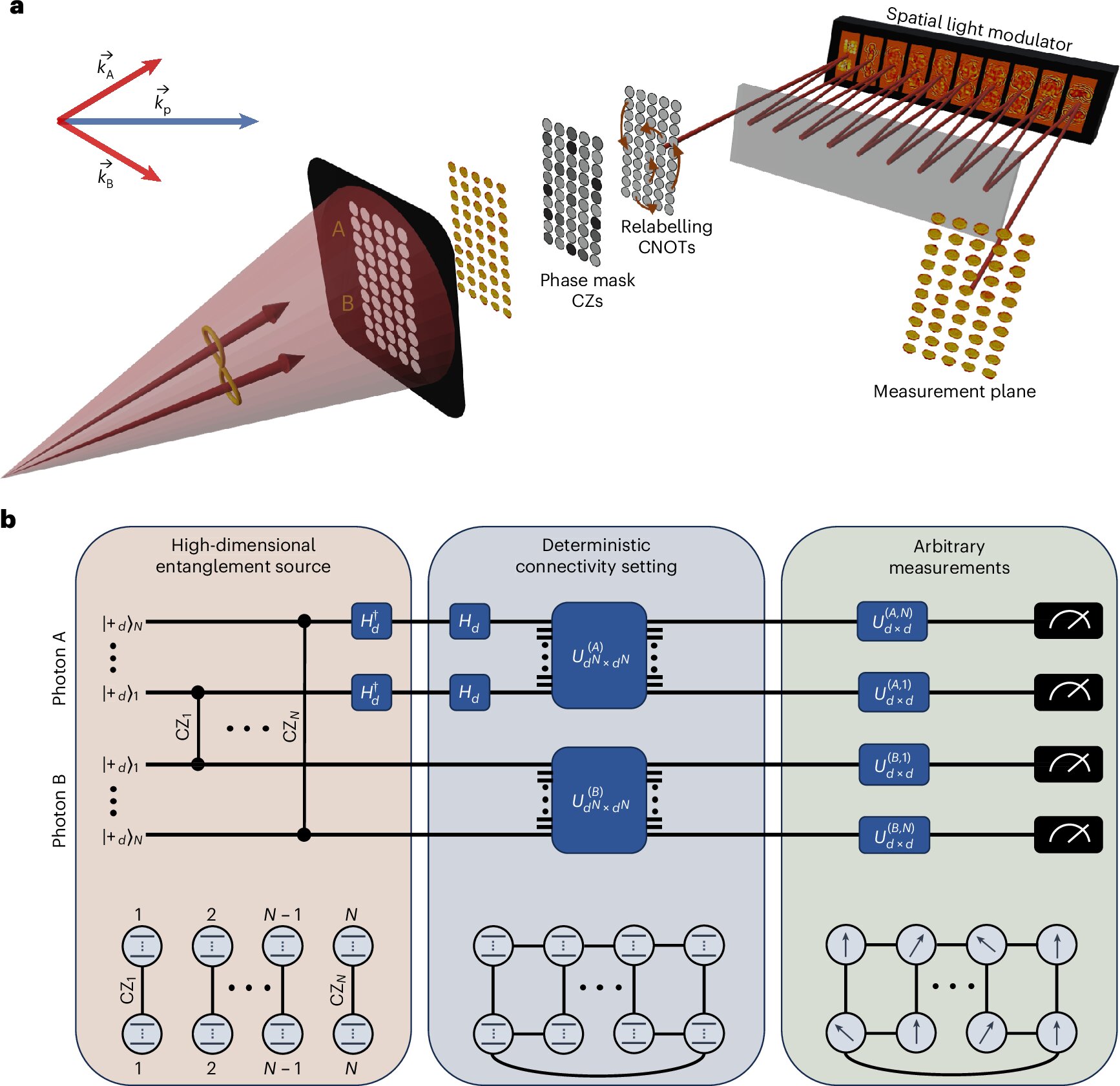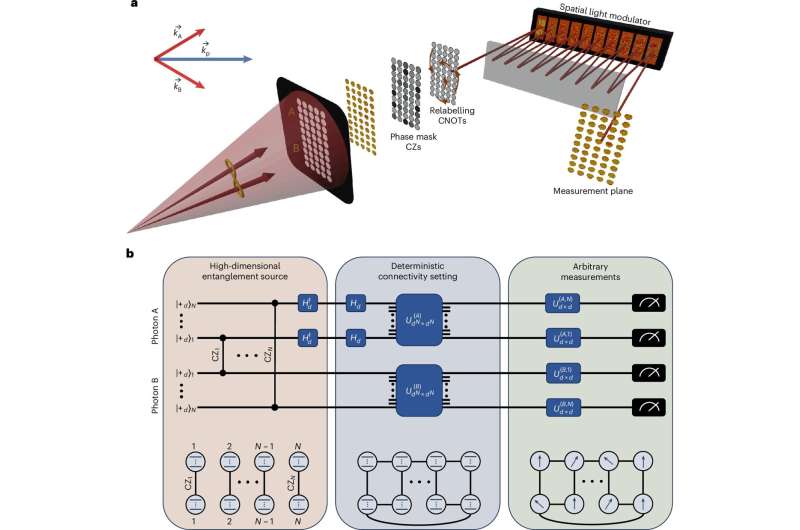

A recent study, published in Nature Photonics, by Prof. Yaron Bromberg and Dr. Ohad Lib from the Racah Institute of Physics at the Hebrew University of Jerusalem has made significant strides in advancing quantum computing through their research on photonic-measurement-based quantum computation.
This method holds the potential to overcome some of the challenging obstacles in quantum computation, offering a more scalable and resource-efficient solution by using high-dimensional spatial encoding to generate large cluster states.
Quantum computers are facing a major roadblock in producing large cluster states necessary for computations. The standard approach sees detection probabilities decreasing exponentially as the number of photons increases.
Prof. Bromberg and Dr. Lib’s study addresses this issue by encoding multiple qubits within each photon through spatial encoding. This innovative approach has successfully generated cluster states with over nine qubits at a frequency of 100 Hz, a remarkable achievement in the field.
Additionally, the researchers demonstrated that this method substantially reduces computation time by enabling instantaneous feedforward between qubits encoded within the same photon. This breakthrough opens the door to more resource-efficient quantum computations, potentially leading to faster, fault-tolerant quantum computers capable of handling complex problems.
Prof. Bromberg commented, “Our results show that using high-dimensional encoding not only overcomes previous scalability barriers but also offers a practical and efficient approach to quantum computing. This represents a major leap forward.”
Dr. Lib added, “By tackling both scalability and computation duration issues, we’ve paved a new way forward for measurement-based quantum computation. The future of quantum technology just became a little closer.”
This study marks an important milestone in the ongoing pursuit of realizing the full potential of quantum computing through photonics.
More information:
Ohad Lib et al, Resource-efficient photonic quantum computation with high-dimensional cluster states, Nature Photonics (2024). DOI: 10.1038/s41566-024-01524-w
Provided by
Hebrew University of Jerusalem
Citation:
New photonics approach enhances quantum computation efficiency (2024, October 9)
retrieved 9 October 2024
from https://phys.org/news/2024-10-photonics-approach-quantum-efficiency.html
This document is subject to copyright. Apart from any fair dealing for the purpose of private study or research, no
part may be reproduced without the written permission. The content is provided for information purposes only.